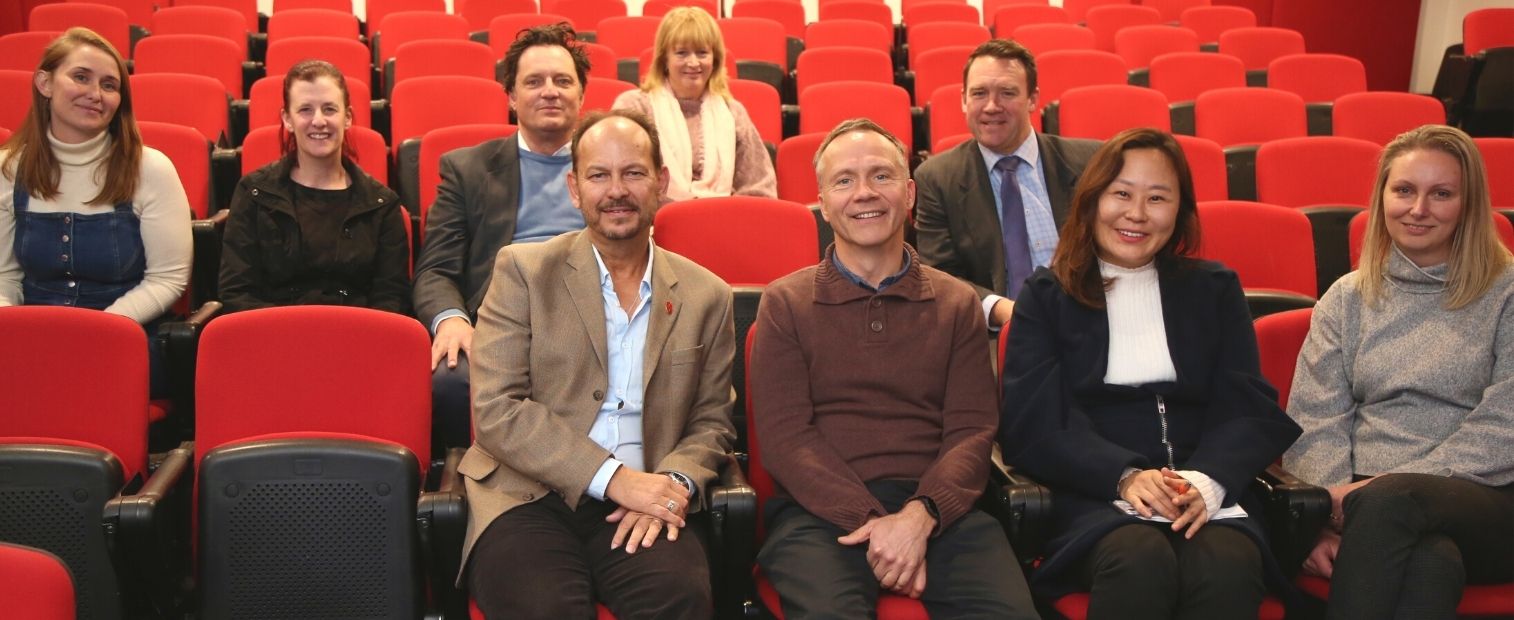Improving mental health for hospitality workers
 (Featured in this image from left to right: Ngaire Griggs, Tanya Harrowell, Mark Blyth, Dr Richard Robinson, Jan Watson, Oliver Buddrick, Chris Harris, Kijung Choi and Marcela Fang)
(Featured in this image from left to right: Ngaire Griggs, Tanya Harrowell, Mark Blyth, Dr Richard Robinson, Jan Watson, Oliver Buddrick, Chris Harris, Kijung Choi and Marcela Fang)
For people on the front line of the hospitality industry, it’s their job to make the consumer happy but how much do we know about the happiness of the hospitality worker?
William Angliss Institute acknowledges this issue and, as a specialist centre, have taken a lead working with Dr Richard Robinson and his team from the University of Queensland (UQ) to establish a workshop and resources for entry-level chefs and hospitality staff.
Dr Robinson, a trained chef turned academic, said, “For workers at the frontline of the hospitality industry, it’s their job to make the consumer happy. But there needs to be a shift in culture to look after the workers’ happiness.”
Angliss takes a leadership role in preparing resources and training to equip entry level chefs and apprentices with the tools to own and manage their own mental health, while having an awareness of others.
The Institute’s Director of Education Chris Harris said, “The motivation comes from our Chef-educators, Dr Oliver Buddrick and Jan Watson’s interest in Richard and the UQ team’s research and disproportionately high levels of stress and other markers of mental health and wellbeing challenges in the industries we serve.”
Dr Robinson said, “Interventions are required at different levels, starting with the technical colleges, which influence kitchen culture including how they select teachers and how they train students in industry standards.”
According to Chris, “The Institute’s approach is to ensure our curriculaum and teaching develops the 21st century skills of our students, a part of which is the creation of a toolkit for mental health and wellbeing.”
Chris said that the Institute has galvanised Vocational and Higher Education students to participate in two workshops (both face-to-face and online) in order to get their feedback on the workshop format itself and the materials.
“The next step is for Richard and the team to analyse the student feedback, re-work the workshops and propose a Unit for inclusion in training packages. We will be looking to include this in our curriculum moving forward at the Institute,” Chris said.
The Institute has had a focus toward changing working cultures to generate more workers in the industry, particularly through the peak of the pandemic. Angliss Vocational Education Training Manager Sandi Homer explained, “The culture in industry is changing to reflect supporting hospitality staff to succeed and we are trying to give our students the best start possible. During COVID-19 lockdowns, many teachers designated time in each class to check in with students to make sure that they were okay.”
According to Richard’s research, figures show that hospitality has one of the lowest retention rates of any industry. Australian government figures predict that by 2023 there will be a shortage of 60,000 chefs. Dr Robinson believes interventions are required at different levels, starting with the technical colleges, which perpetuate the kitchen culture right down to the way they select teachers.
In addition to this, during COVID-19 lockdowns the Institute ran a program of ringing students to make sure they are okay and sent out more than 360 care packagesto at-risk students to give them some extra help. Substantial support was given to students to help them complete their practical units via summer school options so that these students could be ready to get jobs and achieve their career aspirations.
The Institute offers students wellbeing assistance through the Wellbeing & Counselling Service and disability and learning provisions offered face to face or online. Part of the student support services includes educating people about their rights and acceptable work practices. In addition to this, the Institute advocates Stress Less Week, RUOK day, and there will always be someone on campus to talk to.
If you feel that you need help, please call Lifeline on 13 11 14, or if you are a student at the Institute, please email our on-campus Wellbeing and Counselling Services on wacs@angliss.edu.auor phone (03) 9606 2210


